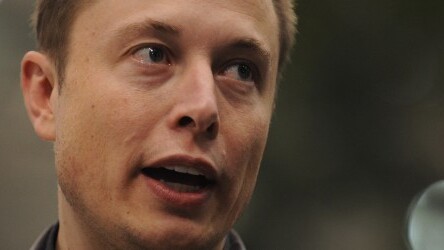
Entrepreneur and Tesla Motors CEO Elon Musk will publish an “alpha design” for Hyperloop, an entirely new form of public transportation that is faster than the bullet train and potentially self-powering, on August 12.
Details about Hyperloop are slim, but it’s clear that as always Musk has lofty ambitions for the project. He has described it in the past as a “cross between a Concorde, a railgun and an air hockey table,” although that says little as to its form factor or underlying technology.
Will publish Hyperloop alpha design by Aug 12. Critical feedback for improvements would be much appreciated.
— Elon Musk (@elonmusk) July 15, 2013
In an interview with PandoDaily in July last year, Musk described Hyperloop as the fifth major tent pole for modern transportation, placing it on a pedestal beside planes, trains, boats and automobiles.
“This system I have in mind, how would you like something that can never crash, is immune to weather, it goes three or four times faster than the bullet train… it goes an average speed of twice what an aircraft would do,” he said. “You would go from downtown LA to downtown San Francisco in under 30 minutes.”
He later added that it was possible for Hyperloop to be self-powered using solar energy; it would therefore generate more power than it consumed in day-to-day use.
“There’s a way to store the power so it would run 24/7 without using batteries,” he added. “Yes, this is possible, absolutely.”
Hyperloop sounds like a perfect scenario and as a result, almost impossible to realize. Yet Musk’s track record with Tesla and SpaceX shows that the entrepreneur is perfectly capable of delivering on ideas that to many would be simply unfeasible.
Musk added on Twitter that he would be looking for “critical feedback” and “improvements” for the initial design once it’s released to the world next month. Hyperloop is still shrouded in mystery, but it won’t be much longer before we know a whole lot more about Musk’s intentions.
Image Credit: ROBYN BECK/AFP/Getty Images
Get the TNW newsletter
Get the most important tech news in your inbox each week.





